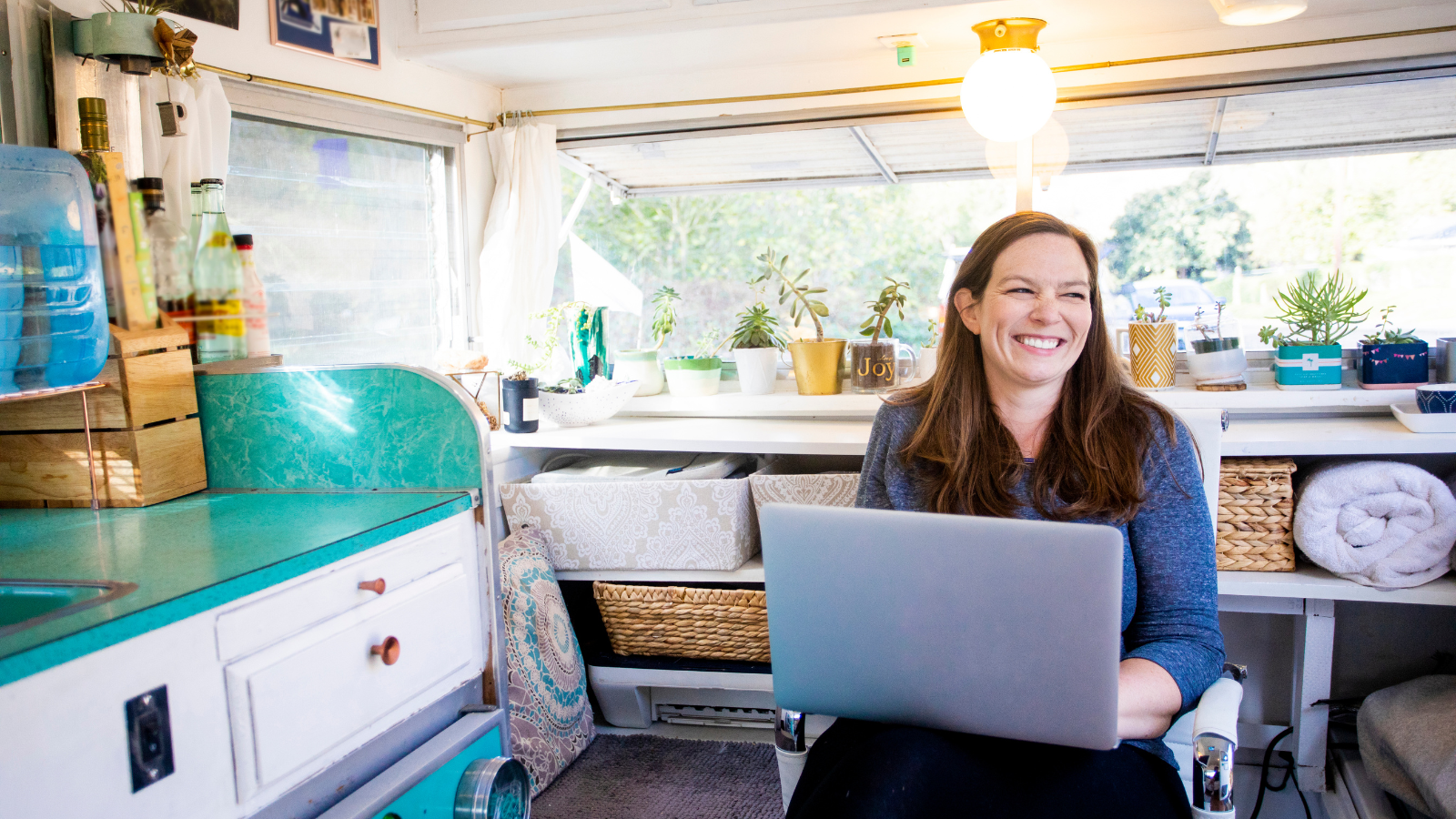The RV, once only dedicated to vacationing and traveling to get away from the constant pulls of regular life, has transformed into an office space in recent years, thanks to advancements in technology as well as changes in the workplace. Working remotely is more possible – and acceptable – than ever. Campgrounds have stepped up their game to accommodate RVers by providing internet access.
Many RVers are very appreciative of this change, as having a job that allows them to work remotely also allows them pack up the RV and travel at whim. They can take more frequent trips in the RV, or they can be seasonal RVers and work remotely from their RV for the summer in a different location from home entirely. “Workamping” is here to stay.
So, all of this naturally invites the questions: How do you set up an office in an RV? How do you keep your RV workspace organized?
- Choose your space. Initially, you need to make a decision as to where you’re going to set up your workspace, and whether you’ll have a dedicated space that is set up permanently, more or less. Having dedicated space is easier if there are fewer people living in the RV, or if you have a certain type of RV, such as a toy hauler. Even though many RV manufacturers are incorporating details with remote work in mind, most RVs don’t have this type of space. A standing desk or fold-out desk can be great options, as they can be folded up and put away when not in use. Some people who work remotely more often may choose to revamp a space in the RV, such as adding a desk where a couch or dinette used to be.
- Have a place for everything. We’ve discussed before how to keep your RV organized, and the key to that is to have a dedicated spot for everything. Each item you put into your RV should have an appropriate bin or storage spot, where that item can be found and put back there consistently. This method alleviates having to search for something you need; you already know where to find it. A workspace is no different. Everything must have a place. Do you need a printer? A wireless travel version might do the trick. Do you need office supplies such as paper lips, pens, sticky notes, charging cables, etc.? A jewelry organizer or a partitioned storage bin might be the perfect spot to keep things organized.
- Utilize wall space. You’ll need to use a table or counter to set up your laptop computer, but the wall beside that surface can be transformed as a functional office center to get supplies out of bins and away from your “desk.” Wall organizers can help you keep paperwork, mail, and stationary out of the way yet easy to reach if needed. Another option is to use a pull-down desk that is stored upright on the wall itself and can be brought down when it’s time to work.
- Tame the cables. Although technology can be a blessing, the number of wires associated can be downright annoying. It’s easy to have a tangled mess of cables, especially if you set up and take down your workspace regularly. First, labeling each cable – a label maker works well – will help you to be able to see at a glance which cable belongs to which device. Second, storing cables and wires in a cable caddy keeps cables away from one another and easy to store. Remember, everything in its place.
- Apps. Many companies already have apps built into their communication platforms, but if you’re working for yourself, use apps to help manage your calendar, email, and other necessary functions for your line of work. Apps often have desktop and mobile phone components, so you can be linked to these things regardless of whether you’re around your primary laptop or not. Microsoft Outlook, for example, is used on a laptop, but it has an app component so that you can stay apprised of email communication on your phone. Likewise, a file sharing system for outgoing and incoming documents is important to have.
- Go paperless. Going paperless reduces clutter in the RV as well as allows you to see important information in a timely manner as you don’t need to be checking a physical mailbox. This is essential if you’re traveling for an entire season and important documents or communication need to reach you. Likewise, online banking for paying bills or getting paid is essential. Most banks offer apps to help manage your finances through the internet.

